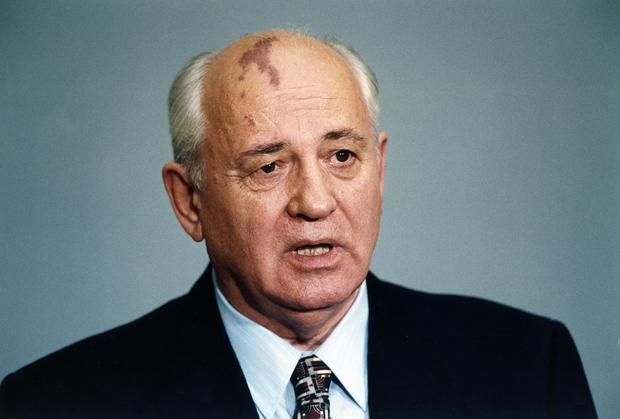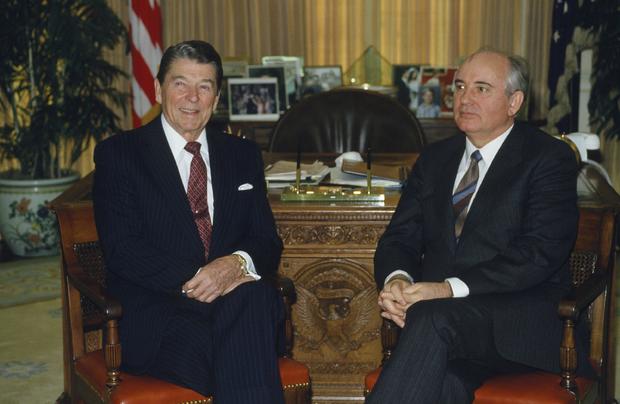Mikhail Gorbachev, the last leader of the Soviet Union, has died at age 91, Russian state media reported and his personal press secretary Vladimir Polyakov confirmed to CBS News.
His cause of death was not immediately released, but Gorbachev’s office had said earlier that he was undergoing treatment at the Central Clinical Hospital in Moscow, according to The Associated Press.
Gorbachev served as the General Secretary of the Communist Party of the Soviet Union from 1985 until 1991. During his time in this role, he oversaw a deescalation of the Cold War, which culminated in the dissolution of the USSR and the fall of the Berlin Wall.
He didn’t look like a revolutionary, or set out to be one, but Gorbachev changed the course of history.
Melde Bildagentur\ullstein bild via Getty Images
Born into a farming family in 1931 in what was then the Soviet Union, Gorbachev went to Moscow to study law, joined the Communist Party and met and married Raisa Gorbacheva. Together, they went on to change the face of Communism.
Before Gorbachev, Soviet leaders never ventured into the streets, let alone pressed the flesh. But in 1985, the youngest-ever Secretary General of the Communist Party swept the old ways aside. His twin policies of glasnost and perestroika opened the country up.
Gorbachev’s unprecedented charm and style on the world stage signaled a thaw in the Cold War.
When Gorbachev met U.S. President Ronald Reagan in Washington, D.C., in 1987 to sign the Intermediate-Range Nuclear Forces Treaty, it was clear that former enemies had found common ground.
Ron Sandler/NBCU Photo Bank/Getty Images
“Mr. General Secretary, though my pronunciation may give you difficulty, the maxim dov-vee-eye no prevee-eye. Trust but verify,” Reagan said.
The Soviet leader responded through a translator: “You repeat that at every meeting.”
In 1990, Gorbachev was awarded the Nobel Peace Prize. The world loved him, but the Soviet people turned against their leader.
“What he didn’t realize is that the more modern it became, and the more open it was, and the more reformed it was, the less the Communist Party would have a grip on power,” said former U.S. Deputy Secretary of State Strobe Talbott.
His economic reforms weren’t working. Soviet citizens were going hungry, and getting angry.
In August 1991, hardliners organized a coup. Gorbachev survived, but it was too much for him. He resigned as general secretary and watched from the sidelines as the Soviet Union collapsed while he continued to serve as the first and last president of the USSR. He resigned from that post on December 25, 1991, and the USSR officially dissolved the next day.
After his wife died from leukemia in 1999, a devastated Gorbachev found solace in his think tank on international issues.
He reinvented himself as a capitalist, starring in commercials for Pizza Hut to raise money for childhood cancer. But his true legacy was so much more.
“History will judge that Gorbachev may be one of the most dramatic examples there is of what has been called the ‘Great Man’ theory of history, which is to say having the right person in the right job at the right time,” Talbott said.


